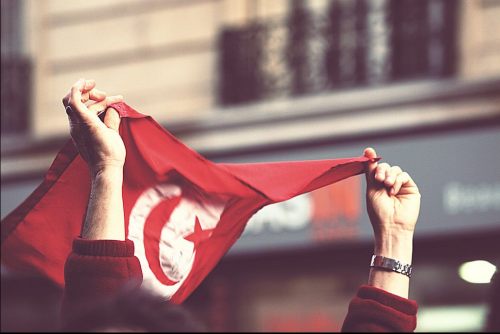It all started rather spontaneously – one of my friends, Bassem Bouguerra, posted a simple status on Facebook offering to serve in Prime Minister Mehdi Jomaa’s new transitional government. He offered to do so for free, and only up to a year. Along with these few lines, he posted a short summary of his academic and professional experience, as well as a program of what he intends to do if selected to serve. Finally, he invited other young adults to do the same.
I followed suit, and a few of my other friends followed suit as well. What was one person became two, and five, and sixteen, and twenty, and now upwards of fifty. All posts showed great motivation, experience, and willingness. Most had graduate degrees (Master’s, PhD’s, JD’s). A Facebook page was created to compile all candidacies – aptly titled ‘7koumetna’ [Our government]. In a mere 24 hours, the page now has close to 10,000 ‘Likes.’
One might ponder: well, it’s all on Facebook – why does this matter anyway? We all know PM Jomaa probably won’t even look at the page, let alone consider appointing some of the individuals to serve in office. However, one should think twice before dismissing the page – and the movement (yes, movement) – so quickly.
We took to Facebook because it is, unfortunately, the Internet for many Tunisians. The social networking page is used to look up news, to see the government’s latest charades, and share jokes. It is, for better or for worse, a social network par excellence. Whatever is posted on Facebook will usually have at least some national buzz offline. But this isn’t why the youth movement is important in Tunisia.
These youth are volunteering their time and effort at a very fragile time for the country. Prior to this moment, so many of us gave up. So many of us thought, “That’s it. Ben Ali is gone, and now it’s time for the rest of them to have their piece of the pie.” We cannot be blamed for having such sentiments. We have seen countless ‘dialogues’ and only suffered as the promises made to us were broken. All of the candidates for prime minister in the national dialogue were upwards of the age of 50 (one was 92 years old. 92!). We see that our country has the skill, the intelligence, and the energy to move forward – but we also see that nobody is taking the youth seriously. Instead, we have age-old enemies trying to achieve some sort of poetic justice. History tells us that the Tunisian Islamists, Marxists, and nationalists go ‘way back.’ They hated each other since the 1970s ‘in college’ (as my mother describes it). And now, they are fighting to the death for power and prestige in Tunisia’s new era of governance. That’s one side. The other side is the ‘fuloul’ of Ben Ali – the remnants of his regime. So there we have it. Two sides: former activists against the regime (who fight amongst one another other), and former supporters of Ben Ali.
This leaves the Tunisian people with very little hope to find any one party or individual to represent them and their ideas. Very little hope in trusting that any government will do anything to help move the country forward. I was one of these people – as I watched the parties fight amongst each other through the lagging negotiations, I felt that there was no hope. All they wanted was ‘el-kursi’ [the chair, a metaphorical term that means power].
What happens when you start to see fresh faces looking to serve their country – for free? It reinvigorates your spirit and revives that hope. It helps all of us realize that now, there is no way to go but forward. It brings up that feeling we first had when Ben Ali left, or when many of us voted for the first time. Sure, the feeling may be ephemeral, but it means something. It reminds us that not all hope is lost.
Last but not least, just earlier today I saw a headline in the Wall Street Journal reading, “Young Tunisians Embrace Jihad, Raise Tension at Home.” Highlighting youth in terrorism is hot in journalism, I get it. But how come I did not see one article highlighting this very positive development in Tunisia (besides Al-Jazeera and TunisiaLive)? An article that highlights the youth rising up to serve their country effectively, intelligently, temporarily and voluntarily.
In any case, people will believe whatever they want to believe. However, the whole world should be aware of 7koumetna – and should be aware that the revolution will be built by those who created it: the youth. It is our revolution, not theirs.



